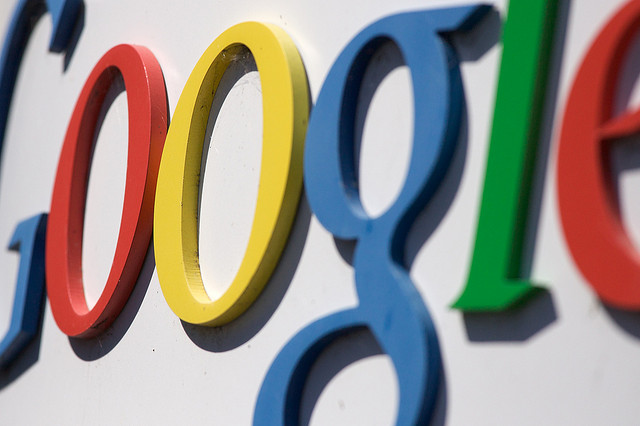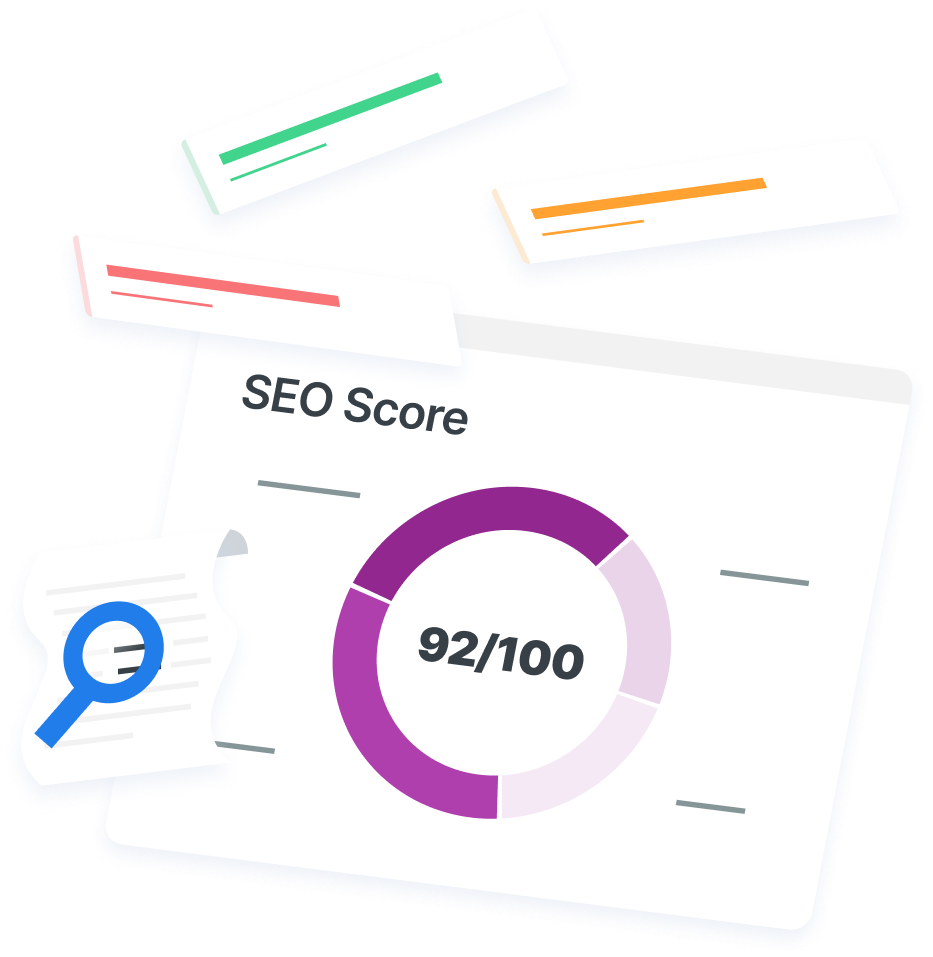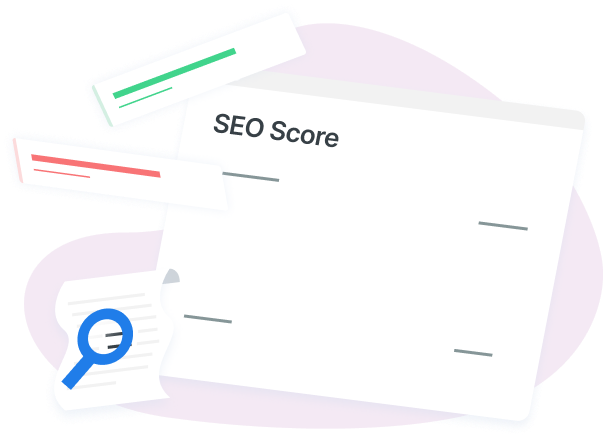-
 8 min. read
8 min. read
-
 WebFX Team
WebFX Team Digital Marketing Agency
Digital Marketing Agency
- The WebFX team is made up of more than 450 subject matter experts in digital marketing, SEO, web design and web development, social media, and more. Together, they’ve helped WebFX’s clients earn more than $3 billion in revenue from the web — and that’s just in the past five years. @webfx
Our InterviewFX series continues, bringing you valuable insights and tips from marketers, entrepreneurs, authors, and other industry experts. Today we’re sitting down with Giuseppe Pastore, an Italian SEO consultant. Giuseppe has worked on many multi-language and multi-country SEO projects for both large and small websites, making him one of the most experienced website consultants in the industry.
He was kind enough to answer five of our most pressing questions on search engine optimization, Google penalties, and link building. Keep reading to see Giuseppe’s thoughts on SEO and how your business should approach it!
1. Is there a difference between how SEO is approached in Italy (or other countries/regions you’ve worked in) versus the United States? If so, can you describe those differences?
I’ve worked on several multi-language websites and multi-country projects, and it’s true that the smaller the country (and the target), the easier it is to rank.
This is due to the fact that, simply, there are less websites in general, thus less competitors in each niche. This consideration implies also that you need a smaller investment to achieve results. More or less, on-page SEO demands remains the same, while you need less off-page SEO to rank.
In my opinion, this should suggest to business owners to widen their online market to smaller countries where demand is low but the entry barrier is also low. As a side note, in this case, be sure people actually use their native language and not English to search on Google. Italy is a perfect fit in this situation, because the competition is not too high.
2. Is there (or should there be) a difference between the way SEO is approached for small websites and large ones?
 Approaching an SEO project for a large website requires a better understanding of technical optimization, while often on small websites you can just work on HTML and content. On small websites you don’t have typical issues you can encounter with ecommerce or big online magazines. Big sites often present challenging problems tied to duplication.
Approaching an SEO project for a large website requires a better understanding of technical optimization, while often on small websites you can just work on HTML and content. On small websites you don’t have typical issues you can encounter with ecommerce or big online magazines. Big sites often present challenging problems tied to duplication.
For example, imagine faceted navigation in an ecommerce site, or articles assigned to multiple categories, or multiple URLs in news websites. When the number of pages is in the range of dozen of thousands or even millions, high chances exist that duplicated content is a big part of them. This also represents also an opportunity, though: by simply fixing technical issues, you can obtain an obvious traffic increase in large websites.
In many cases, I’ve been able to reach 100%+ year over year just working on a site. While you can still have a significant percentage increase, with small sites these absolute numbers are harder to grow, since you can only target few queries. When working on small websites, it’s mandatory that you have a solid link earning strategy along with very good content, or your rankings will not move that much.
3. What’s one of the smallest changes someone can make to their website to help improve their rankings?
Sometimes checking if the robots.txt file is correct and spotting nonsense disallow rules can make a big difference, but this doesn’t always happen. For every website I’d suggest being sure that each page has its own unique HTML title, aligned with the page content and containing the topic the page should rank for (not more than a few keywords). Obviously, be sure the same terms appear in the body content as well.
4. As link building is one of your specialties, can you offer any advice to businesses that are just starting out with this practice? Are there any misconceptions about link building that clients often have?
This is a tough question. Having done link building by almost every mean and having invented a couple of techniques myself (including dropped link building and hacked link building), I think I’m qualified to say nowadays links are a dangerous field.
Whilst in the past one could use shady tactics to link to their own website and get away with it, today black hat, gray hat and even supposed white hat links can be really harmful. I don’t deny they can still be a means of ranking, but I don’t suggest one starts building links on their own unless they know what they are doing. And keep in mind that their value may disappear overnight.
 Trying to remain in Google’s TOS almost means you have not to build links at all and just rely on your awesomeness or activate relationships that lead to spontaneous links. This is not a problem for big brands, since it’s quite automatic that their products/services are newsworthy or widely discussed online. But headaches occur for small businesses who struggle to get some visibility in SERPs (in particular in the US ones), because earning links is hard when there’s nothing so memorable in your products, activities or website.
Trying to remain in Google’s TOS almost means you have not to build links at all and just rely on your awesomeness or activate relationships that lead to spontaneous links. This is not a problem for big brands, since it’s quite automatic that their products/services are newsworthy or widely discussed online. But headaches occur for small businesses who struggle to get some visibility in SERPs (in particular in the US ones), because earning links is hard when there’s nothing so memorable in your products, activities or website.
This is where a pro makes the difference. A good one knows which tactics can be used in each case, where links opportunities are, and how to build and how to earn. A great link builder thinks about strategy over tactics and usually comes up with some effective content marketing ideas that even a small business can afford.
In summary: since manual and algorithm penalties, or filters like Penguin, can ruin your online business, my best advice regarding link building is to let a specialist do it for you. If you do it by yourself, prefer relevance to quantity and be careful with anchor text.
5. Many business owners aren’t aware of Google penalties or manual actions until they happen. Can you offer any advice to those unfamiliar with penalties that can help them steer clear of this kind of trouble?
First of all, I think it’s important to clarify that different kinds of “penalties” can be applied to a site:
- Manual penalties
- Algorithmic penalties
- Algorithmic dampening
All of these can be tied either to on-site or off-site SEO factors. Manual penalties occur when more than one human quality rater flags a website as not adherent to Google’s guidelines. Most of the times, inorganic inbound links are the problem.
In this case the message can be either very generic or very detailed, but the point remains that someone has judged your links as unnatural. As I was saying, link building has become potentially dangerous if one doesn’t pay attention to what they are doing, and it’s not rare that you can cause yourself big problems by acquiring improbable links. Manual penalties also can be applied if your content is too shallow, and your site’s reason to exist appears to be monetizing traffic as much as you can.
Affiliate sites not offering real useful information, for example, may be easily de-ranked, especially in competitive niches where webmasters send spam reports to Google about one another. Algorithmic penalties are instead a typical result of over-optimizations, again either on-site or off-site. They occur when a website passes certain limits (with a tolerance depending on its trust).
Keyword stuffing, for example, is a target of algorithmic penalties, as well as anchor text over-optimization. It’s not unusual that specific pages experience big drops in ranking while others continue to rank well. Algorithmic dampening: you surely have heard of Panda and Penguin.
These two algorithms have the purpose of evaluating the “badness level” of a website, negatively adjusting its ranking in case a certain threshold is passed. This is very simplified, but I’m trying to clarify that Panda and Penguin are not necessarily penalties, but filters that just make a website rank worse than it should according to what the algorithms consider “normal.” Having worked on several cases of penalties, I can say that manual ones are the easiest to be lifted, while Panda and Penguin filters are the hardest. Now, how can a webmaster/website owner stay away from troubles?
My advice is:
- Hire reputable experts to manage your SEO projects
- Set organic traffic and conversions as your KPIs, not rankings (rankings are the means and not the goal)
- If off-site SEO is provided, pay attention to
- where your site is linked:
- topical relevance (do the sites relate to yours?)
- link positions (preferably in content and not in the sidebar/footer)
- and how it is linked:
- if branded or not optimized anchor text is used
- links to internal pages and not only the homepage
- where your site is linked:
These are the very basic things you have to pay attention to. A reputable SEO professional or company will not only improve your organic presence and performance, but also will not put your business at risk with shady tactics (unless you agree to it, of course). Giuseppe Pastore is an Italian SEO consultant experienced in technical SEO, link acquisition, content strategy, and CRO.
is an Italian SEO consultant experienced in technical SEO, link acquisition, content strategy, and CRO.
In his spare time he runs a bunch of personal websites but mostly loves going salsa dancing (a passion that has led him to several European nations to have fun in festivals), and supporting his city’s basketball team (Avellino). You can get in touch with him through his website or on Twitter. Photo credit: Jens Cramer, Marcin Wichary
-
 The WebFX team is made up of more than 450 subject matter experts in digital marketing, SEO, web design and web development, social media, and more. Together, they’ve helped WebFX’s clients earn more than $3 billion in revenue from the web — and that’s just in the past five years.@webfx
The WebFX team is made up of more than 450 subject matter experts in digital marketing, SEO, web design and web development, social media, and more. Together, they’ve helped WebFX’s clients earn more than $3 billion in revenue from the web — and that’s just in the past five years.@webfx -

WebFX is a full-service marketing agency with 1,100+ client reviews and a 4.9-star rating on Clutch! Find out how our expert team and revenue-accelerating tech can drive results for you! Learn more
Try our free SEO Checker
Boost your site’s search performance with our free SEO Checker. Analyze your website for optimization tips on titles, headers, content, speed, and more. Get a free report now to enhance rankings on Google, Bing, Yahoo, and beyond!



How Is Your Website’s SEO?
Use our free tool to get your score calculated in under 60 seconds.
Try our free SEO Checker
Boost your site’s search performance with our free SEO Checker. Analyze your website for optimization tips on titles, headers, content, speed, and more. Get a free report now to enhance rankings on Google, Bing, Yahoo, and beyond!






